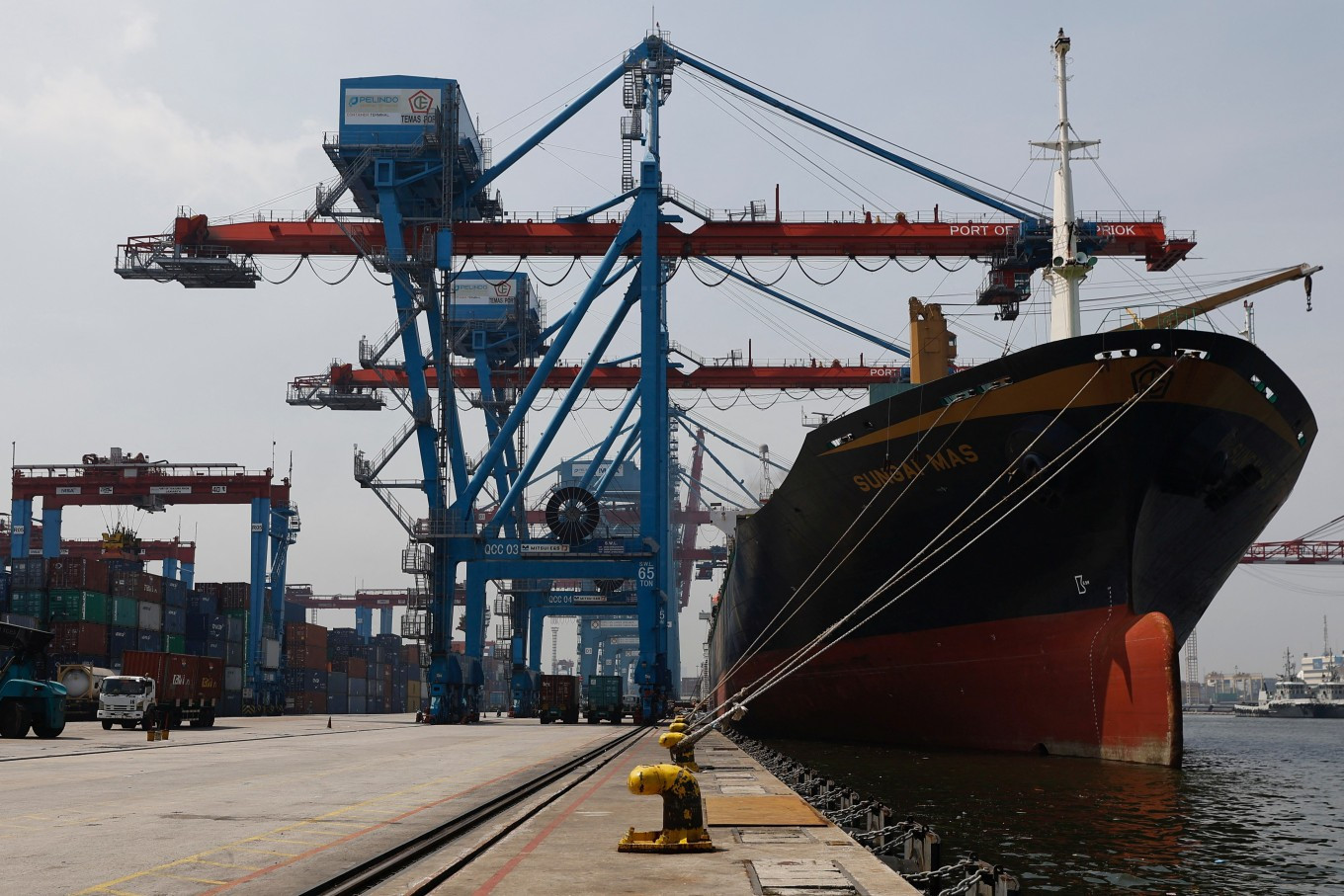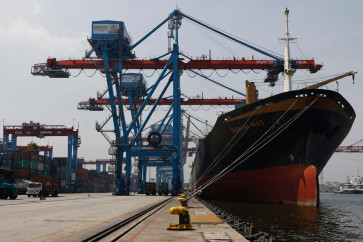Popular Reads
Top Results
Can't find what you're looking for?
View all search resultsPopular Reads
Top Results
Can't find what you're looking for?
View all search resultsAnalysis: Rethinking Indonesia's DHE policy amid rupiah pressures
Change text size
Gift Premium Articles
to Anyone
T
he contribution of natural resource export receipt (DHE) to Indonesia's foreign reserves remains limited, intensifying calls to revise Government Regulation (PP) No. 8/2025 on DHE. While the policy temporarily keeps export proceeds onshore, much of the forex (forex) ultimately flows back overseas to service external debt. As a result, the regulation has fallen short of its stated goal of strengthening reserves, an issue that has become more urgent as the rupiah faces renewed depreciation pressures.
Furthermore, exporters have continued to voice their increasing frustration with the DHE lock-up, especially after the lock-up period was extended earlier this year from a minimum of 3 months to 12 months for non-oil and gas DHE. Despite mounting complaints, the government has been reluctant to significantly loosen the rules, arguing that a major relaxation could prompt exporters to quickly shift funds offshore once constraints are lifted.
However, the government's re-examination of PP No. 8/2025 unexpectedly revealed a potential loophole that has allowed certain exporters to move funds out of the special accounts where DHE are intended to remain locked. Finance Minister Purbaya has acknowledged the issue and stated that the regulation will be reviewed, but he has also cautioned businesses to keep their expectations reasonable, noting that any revisions will likely focus on narrow technical adjustments rather than a broad policy overhaul.
Bank Indonesia (BI) has added that the compliance rate for the DHE lock-up exceeds 95 percent. This implies that the loophole, while problematic, is technically permissible under the existing legal framework.
The rupiah's continued depreciation has added a new layer of urgency to these concerns. The currency slipped to Rp 16.760 per United States dollar on Nov. 18, its weakest level so far this month, intensifying scrutiny over policies that might be limiting forex liquidity in the domestic market, such as the DHE lock-up.
Compounding to these challenges, BI has been unable to lower the BI Rate, holding it at 4.75 percent in November due to persistent inflation and heightened global uncertainty. With room for monetary easing is constrained, BI has fewer tools available to stabilize the rupiah, making it even more important that existing forex regulations do not unintentionally dampen market liquidity.
This brings renewed attention to one of the key weaknesses of the DHE lock-up mechanism: the very limited range of activities for which the funds can be used. Under Article 11A of PP No. 8/2025, exporters may deploy locked-up proceeds for only a handful of purposes, one of the most common being the repayment of foreign debt. In practice, this means that the forex kept onshore ends up flowing back overseas relatively quickly—reducing any meaningful accumulation of forex reserves and undermining the policy's initial intent.


















